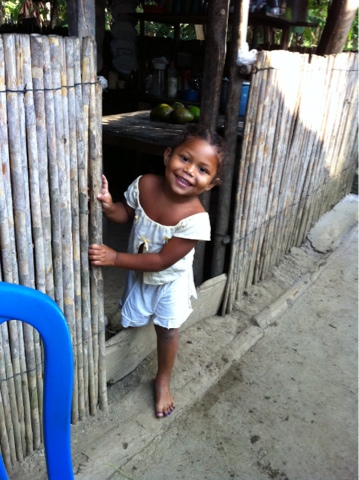I was also in charge of doing a devotion at that final discussion. I wanted to give Biblical insight into what we had been experiencing, but I also wanted to some way of framing that Biblical discussion into a way that we could reflect on the sum of our experiences. Here is what I came up with.
I asked everyone to think of eight people and write down their names or the positions they filled.
- Someone who recognizes that, on their own, they don't have the resources to get the job done, someone who knows that they are utterly dependent on God.
- Someone who has experienced loss, someone for whom grief is an ongoing reality.
- Someone who goes about their work not looking for any recognition, someone who is mild mannered and draws little to no attention to themselves.
- Someone who has a real inner yearning for good to be done, someone who knows what is being done wrong and knows what should be done instead.
- Someone who tries to help people in difficult circumstances, someone who demonstrates mercy in a variety of ways.
- Someone who seem uncorrupted by the ways of the world, someone who is uncorrupted by the evil around them.
- Someone who seeks to restore the wholeness in the people around them, someone who is working for peace.
- Someone who does good but still faces punishment for it, someone who seems to disprove the Biblical maxim that the government is a terror for those who do evil, not those who do good.
We took those names and inserted them into the following scripture passage. You can do the same thing with people that you know, people you work with, people you worship with, etc.
"Now when Jesus saw the crowds, he went up on a mountainside and sat down. His disciples came to him, and he began to teach them. He said:
'Blessed are the ladies who serve food in the Los Pinos resettlement community,
for theirs is the kingdom of heaven.
Blessed are the farmers in Macajepo,
for they will be comforted.
Blessed is the MB pastor who went from economic Strata 6 to Strata 0 (the slums),
for he will inherit the earth.
Blessed are the staff at Justapaz,
for in their hunger for righteousness they will be filled.
Blessed is the lawyer at Mencoldes,
for he will be shown mercy.
Blessed are the the SEED volunteers,
for they will see God.
Blessed is the organizer sowing peace,
for he will be called children of God.
Blessed are is the pastor and her husband who stand up for their displaced congregation,
for theirs is the kingdom of heaven.' "
for theirs is the kingdom of heaven.
Blessed are the farmers in Macajepo,
for they will be comforted.
Blessed is the MB pastor who went from economic Strata 6 to Strata 0 (the slums),
for he will inherit the earth.
Blessed are the staff at Justapaz,
for in their hunger for righteousness they will be filled.
Blessed is the lawyer at Mencoldes,
for he will be shown mercy.
Blessed are the the SEED volunteers,
for they will see God.
Blessed is the organizer sowing peace,
for he will be called children of God.
Blessed are is the pastor and her husband who stand up for their displaced congregation,
for theirs is the kingdom of heaven.' "
















 A
A 

